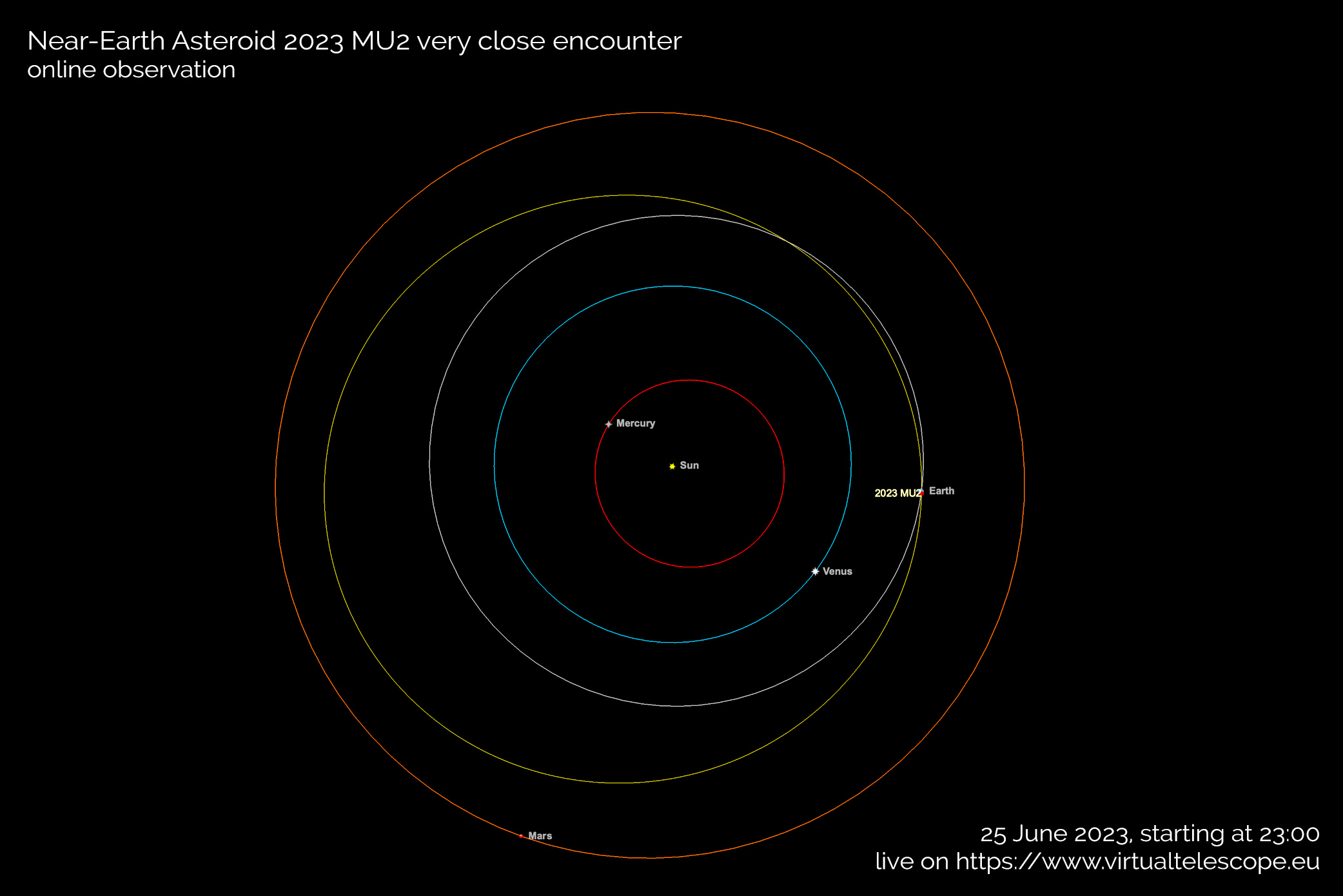Earth is about to have a close encounter with a space rock.
Tonight (June 25), the near-Earth asteroid 2023 MU2 will pass within 134,000 miles (215,000 kilometers) of Earth, or just about 60% of the average distance from our planet to the moon. While this flyby is fairly close in astronomical terms, the space rock isn't likely to pose any threat to Earth or spacecraft in its orbit. According to the NASA/JPL Center for Near Earth Object Studies (CNEOS), the asteroid is estimated to be between 13 and 29 feet (3.9 and 8.8 meters) in diameter, roughly the size of a house or three-story building. 2023 MU2 will make its closest approach on June 25 at 7:19 p.m. ET (2319 GMT).
While these types of asteroids can be fairly hard to spot on your own, luckily you can watch the approach live thanks to a free telescope livestream. The Virtual Telescope Project, hosted by Rome-based astronomer Gianluca Masi, will be streaming the flyby of asteroid 2023 MU2 at 7 p.m. ET (2300 GMT) on Sunday. Watch it live here courtesy of the Virtual Telescope Project or on the project's YouTube channel.
Related: What are asteroids?

Asteroid 2023 MU2 was discovered just days ago on June 16 and confirmed by the International Astronomical Union's Minor Planet Center on Thursday (June 22).
It's far from an outlier. Many space rocks pass close by Earth each week without incident; the car-size asteroid 2023 MW2 passed by Earth today, in fact, at a distance of just 77,000 miles (124,000 km).
Despite innumerable headlines making these events out to be dangerous or frightening, you shouldn't worry too much. CNEOS has cataloged over 32,000 near-Earth asteroids to date, and none are known to pose a threat to Earth in the next century, according to NASA.
That's not to say an impact is impossible, given a long enough timeline. In 2013, a near-Earth asteroid exploded over Chelyabinsk, Russia in what has been called a "wake up call" for near-Earth object detection and planetary defense.







